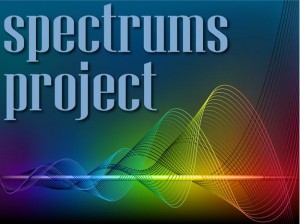 IBCSR’s Spectrums Project is an ambitious attempt to apply what is known about ideological spectrums in politics and morality to the field of religious beliefs and practices. The Project’s goal is twofold: firstly, to deepen understanding of why human beings adopt a spectrum of religious and theological viewpoints; and secondly, to discover strategies for mitigating the problems associated with religious extremism and polarized religious discourse.
IBCSR’s Spectrums Project is an ambitious attempt to apply what is known about ideological spectrums in politics and morality to the field of religious beliefs and practices. The Project’s goal is twofold: firstly, to deepen understanding of why human beings adopt a spectrum of religious and theological viewpoints; and secondly, to discover strategies for mitigating the problems associated with religious extremism and polarized religious discourse.
IBCSR’s main partners in this project are Dr. Catherine Caldwell Harris in Boston University’s Psychology Department. The project’s post-doctoral fellow is Dr. Aimee Radom, who recently completed a dissertation on a related topic through Boston University’s Graduate School. Two doctoral students are working on the project as well: Connor Wood and Nicholas DiDonato. Both are earning their PhDs in the Religion and Science Program within Boston University’s Graduate School. This project is funded by Boston University’s School of Theology, the Arthur Vining Davis Foundations, and the Institute for the Biocultural Study of Religion.
History of the Project
2007-8: research for two books by Wesley J. Wildman & S. Chapin Garner: Lost in the Middle? and Found in the Middle! (both published in 2009). These two books present a preliminary theory of religious ideology with a view to supporting religious moderates whose instincts are to combine the best insights of religious conservativism and religious liberalism. In 2008-9, I established www.liberalevangelical.org to create a community of thoughtful moderates both for mutual support and as a basis for future research.
May 2, 2009: The first spectrums conference was held at Boston University to evaluate the feasibility of studying religious ideology. Guest experts from around the Boston area gathered for the event which yielded a day of fascinating presentations and discussion.
Summer 2009: In the months following the first spectrums conference, I worked with a couple of doctoral students to enhance the preliminary bibliography constructed for that conference. The result was a much longer list of works in a variety of disciplines pertaining to political and religious ideology. This bibliography confirmed our first spectrums conference’s conclusion, namely, that there is a notable gap in the literature pertaining to religious ideology. This bibliography also formed the basis for our future research efforts.
2009-10: During this academic year, I built a research team and raised money for the research project that we now call the Spectrums Project.
May 2010-now: The team began its work by creating a greatly enhanced bibliography and adding annotations for many of the works. In the process we gained a deep appreciation for the rich range of extant research, especially in political ideology.
Fall 2010-now: Based on the annotated bibliography, the team began working out the theoretical framework for a multidimensional construct that would permit the measuring of religious ideology.
Spring 2011-now: In light of the theoretical framework, the team drafted a large question pool and defined a protocol for administering a survey to measure religious ideology.
March 2011: I obtained approval from the Boston University Internal Review Board for piloting the survey.
May 17, 2011: With the theoretical framework and the question pool in place, we held the second spectrums conference at Boston University. On this occasion, we invited five specialists to evaluate the theoretical framework and the question pool, and to refine the protocol for administration. The experts represented diverse disciplines: Dino P. Christenson (Political Science), Sheila Greeve Davaney (Religious Studies and Contemporary American Politics and Religion), John T. Jost (Political Psychology), Valerie A. Lewis (Sociology), and F. LeRon Shults (Philosophy and Theology).
May 18, 2011-now: In light of the second conference, the spectrums team was able to clarify the conceptual framework, adjust the survey design, and refine the question pool.
July 2011: We expect to begin piloting the survey for measuring religious ideology, as well as a demographics survey and the associated surveys for investigating links between psychology and religious ideology.
